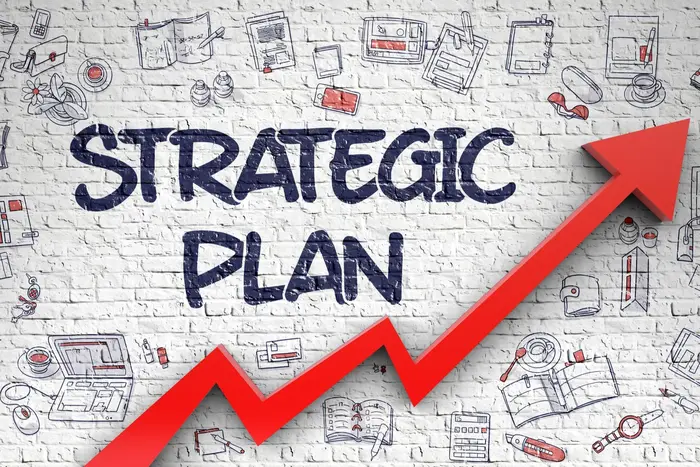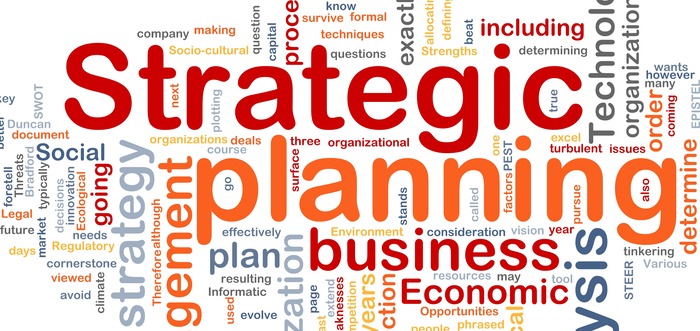Ever feel like you’re putting out fires all day instead of actually growing your business? You’re not alone. Many business owners get caught up in the daily grind, making decisions on the fly and hoping for the best. But without a strategic plan, you’re essentially guessing your way through success. And in a competitive world, that’s a dangerous game.
Strategic planning isn’t just for massive corporations with entire departments dedicated to forecasting and analysis. It’s essential for businesses of every size. Whether you’re launching a startup or steering an established company toward bigger goals, having a clear, actionable strategy makes all the difference.
So, why does strategic planning matter so much?
The Big Picture: Why Strategy Sets You Apart
A strategic plan isn’t just a document—it’s a roadmap. It defines where your business is going, how you’ll get there, and what needs to happen along the way. Strategic planning tools give your team direction, align resources, and help you make smarter decisions.
Without a strategy, businesses tend to:
- React instead of plan
- Waste resources on ineffective initiatives
- Struggle to adapt to changes in the market
- Lose sight of long-term goals
On the flip side, companies with a solid strategic plan operate with confidence. They know where they’re headed, what steps to take next, and how to adjust when challenges arise. That’s a competitive advantage you can’t afford to overlook.
Turning Vision into Reality
It’s easy to dream big, but without execution, those ideas never leave the brainstorming stage. Strategic planning transforms ambition into action. It bridges the gap between vision and results, making sure goals don’t just sound good on paper but actually come to life.
A good strategic plan includes:
- Clear Goals – What do you want to achieve?
- Actionable Steps – How will you get there?
- Timelines – When should key milestones be hit?
- Accountability – Who is responsible for what?
When these elements are in place, progress stops being a guessing game and becomes a structured, measurable process.
Staying Ahead of the Competition
Markets change fast. Consumer preferences shift, technology evolves, and new competitors emerge constantly. Without a strategy, businesses end up scrambling to keep up instead of leading the way.
Strategic planning helps you:
- Identify emerging trends before competitors do
- Anticipate challenges and prepare solutions in advance
- Align your offerings with market demand
- Position your brand as an industry leader
Businesses that plan ahead don’t just react to change—they leverage it. Instead of struggling to catch up, they set the pace.
Resource Allocation: Maximizing Every Dollar
Every business, no matter how big or small, has limited resources. Whether it’s time, money, or manpower, wasting resources can stall growth. Strategic planning ensures you’re investing in the right areas to get the highest return.
By having a plan, you can:
- Avoid overspending on initiatives that don’t align with your goals
- Focus marketing and sales efforts where they’ll have the most impact
- Make informed hiring decisions based on future needs
- Streamline operations to improve efficiency
Without a strategy, businesses often spread themselves too thin, chasing opportunities that don’t deliver results. With a plan, every decision is intentional.
Measuring Progress and Staying on Track
One of the biggest advantages of strategic planning is that it provides benchmarks for success. Instead of wondering if you’re making progress, you’ll have clear indicators showing whether you’re on track.
Metrics to track might include:
- Revenue growth
- Customer acquisition and retention rates
- Market share changes
- Operational efficiency improvements
By regularly assessing these factors, you can fine-tune your strategy, make adjustments as needed, and stay focused on what truly drives success.
Adapting Without Losing Focus
A common myth about strategic planning is that it locks businesses into a rigid path. But the best strategies are flexible. They provide a foundation for growth while allowing room for adjustments.
A well-structured plan makes it easier to pivot when necessary without losing sight of your bigger goals. Whether facing unexpected challenges or seizing new opportunities, businesses with a strategy can make changes strategically—not impulsively.
Leadership Alignment: Getting Everyone on the Same Page
A strong strategic plan isn’t just for the executive team—it unites an entire organization. When leadership and employees are aligned under a shared vision, productivity and morale increase.
Strategic planning fosters:
- Clarity – Everyone knows the company’s goals and their role in achieving them
- Consistency – Decision-making aligns with the bigger picture
- Engagement – Employees feel more invested when they understand the impact of their work
Without alignment, businesses risk mixed priorities, confusion, and inefficiencies. With a strategic plan, teams move forward together with purpose.
Long-Term Success Starts Today
Strategic planning isn’t about predicting the future—it’s about preparing for it. Businesses that take the time to create a clear roadmap set themselves up for sustainable growth, stronger decision-making, and a competitive edge.
If you’re serious about success, don’t leave it to chance. Define your goals, map out your path, and take control of your business’s future. Because those who plan ahead don’t just survive—they thrive.


